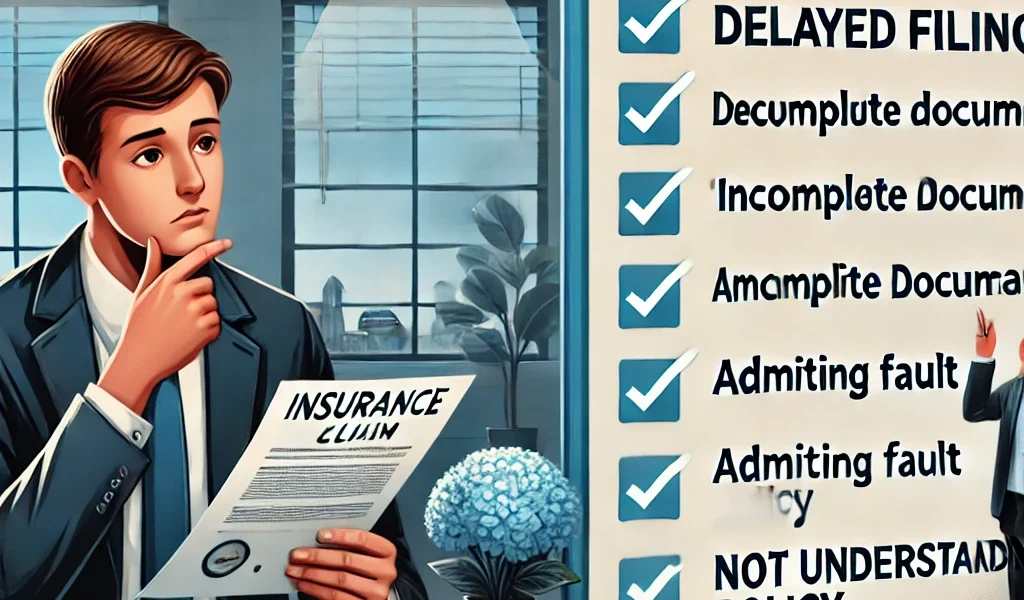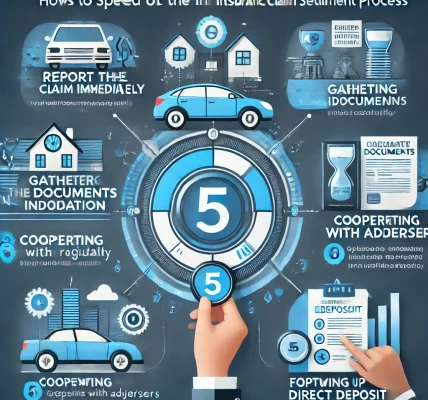Filing an insurance claim can be a complex process, and even small mistakes can lead to claim denials, delays, or reduced payouts. To ensure a smooth and successful claim experience, it’s crucial to avoid common pitfalls. This guide highlights the most frequent mistakes people make when filing an insurance claim and provides tips on how to prevent them.
1. Delaying the Claim Filing
One of the biggest mistakes policyholders make is waiting too long to file a claim. Insurance companies often have strict deadlines for reporting incidents. Delays can result in:
- Claim denials due to missed deadlines
- Difficulty gathering necessary evidence
- Increased skepticism from the insurer
Tip: Report your claim as soon as possible to avoid unnecessary complications.
2. Not Understanding Your Policy
Many people file claims without fully understanding what their insurance covers. This leads to confusion, disputes, and sometimes rejected claims.
Tip: Review your policy carefully and consult your insurer for clarification before filing a claim.
3. Providing Incomplete or Inaccurate Information
Submitting incorrect or incomplete details can delay the claim process or even result in rejection. This includes:
- Incorrect dates, locations, or descriptions of the incident
- Missing documents or supporting evidence
Tip: Double-check all details and provide accurate, complete information when submitting your claim.
4. Failing to Document the Damage or Incident Properly
Insufficient documentation is a common reason for claim denials. If you don’t have strong evidence, your claim may not be processed as expected.
Tip: Take clear photos and videos of the damage, gather witness statements (if applicable), and keep all relevant records.
5. Not Keeping Copies of Important Documents
Losing essential paperwork or not keeping records of communication with your insurer can cause unnecessary delays or misunderstandings.
Tip: Maintain a file with copies of all claim-related documents, emails, and receipts.
6. Admitting Fault Prematurely
In auto insurance or liability claims, admitting fault without proper investigation can weaken your case and impact your settlement.
Tip: Avoid admitting fault or making statements that may be used against you. Let the insurance adjuster determine responsibility.
7. Accepting the First Settlement Offer Without Review
Insurance companies may offer a quick settlement, but it might not fully cover your losses.
Tip: Review the settlement offer carefully, compare it with your actual damages, and negotiate if needed. Consult a lawyer or expert if necessary.
8. Not Following Up on Your Claim
Assuming that your insurer will handle everything without follow-up can result in unnecessary delays.
Tip: Regularly check the status of your claim, respond to requests for additional information promptly, and maintain communication with your insurer.
9. Exaggerating or Misrepresenting the Claim
Providing false or exaggerated information can lead to claim denial and even legal consequences.
Tip: Be honest and transparent in your claim submission. Stick to factual details and provide genuine evidence.
10. Not Seeking Professional Help When Needed
Complex claims, such as large property damage or medical claims, may require expert assistance.
Tip: If your claim is complicated, consider hiring a public adjuster or seeking legal advice to ensure you receive a fair settlement.
Final Thoughts
Filing an insurance claim doesn’t have to be stressful if you avoid these common mistakes. Being proactive, honest, and well-prepared will help you navigate the process smoothly and increase your chances of a successful claim. Always stay informed about your policy and seek professional help if necessary.




